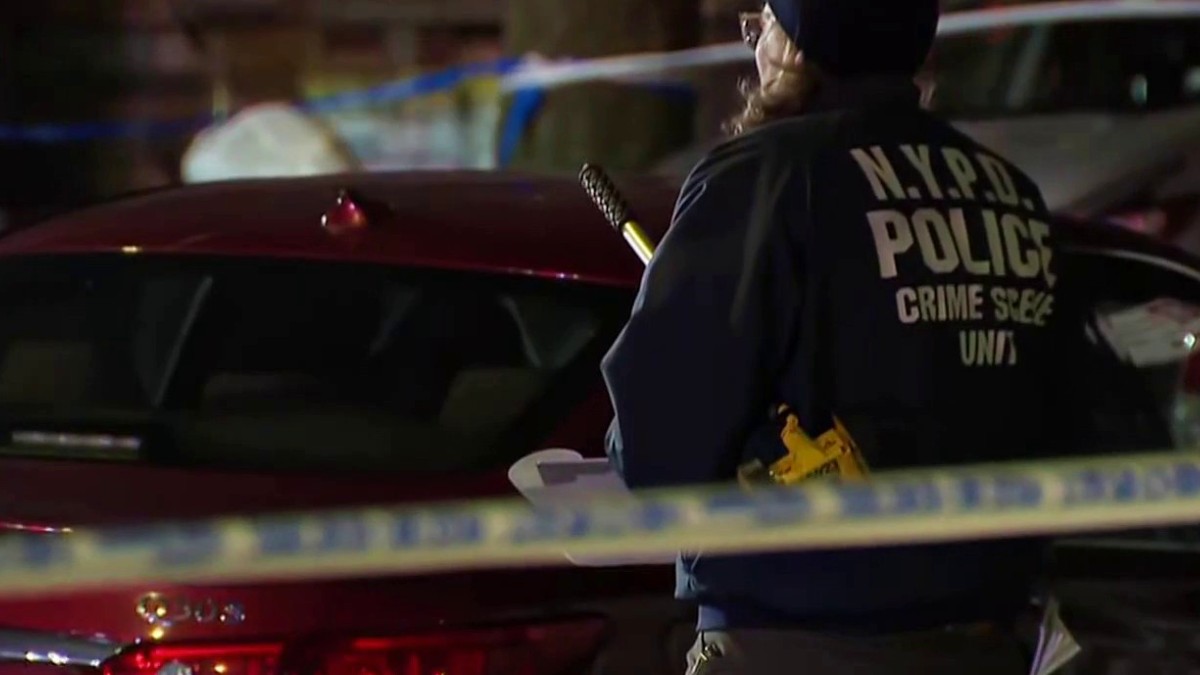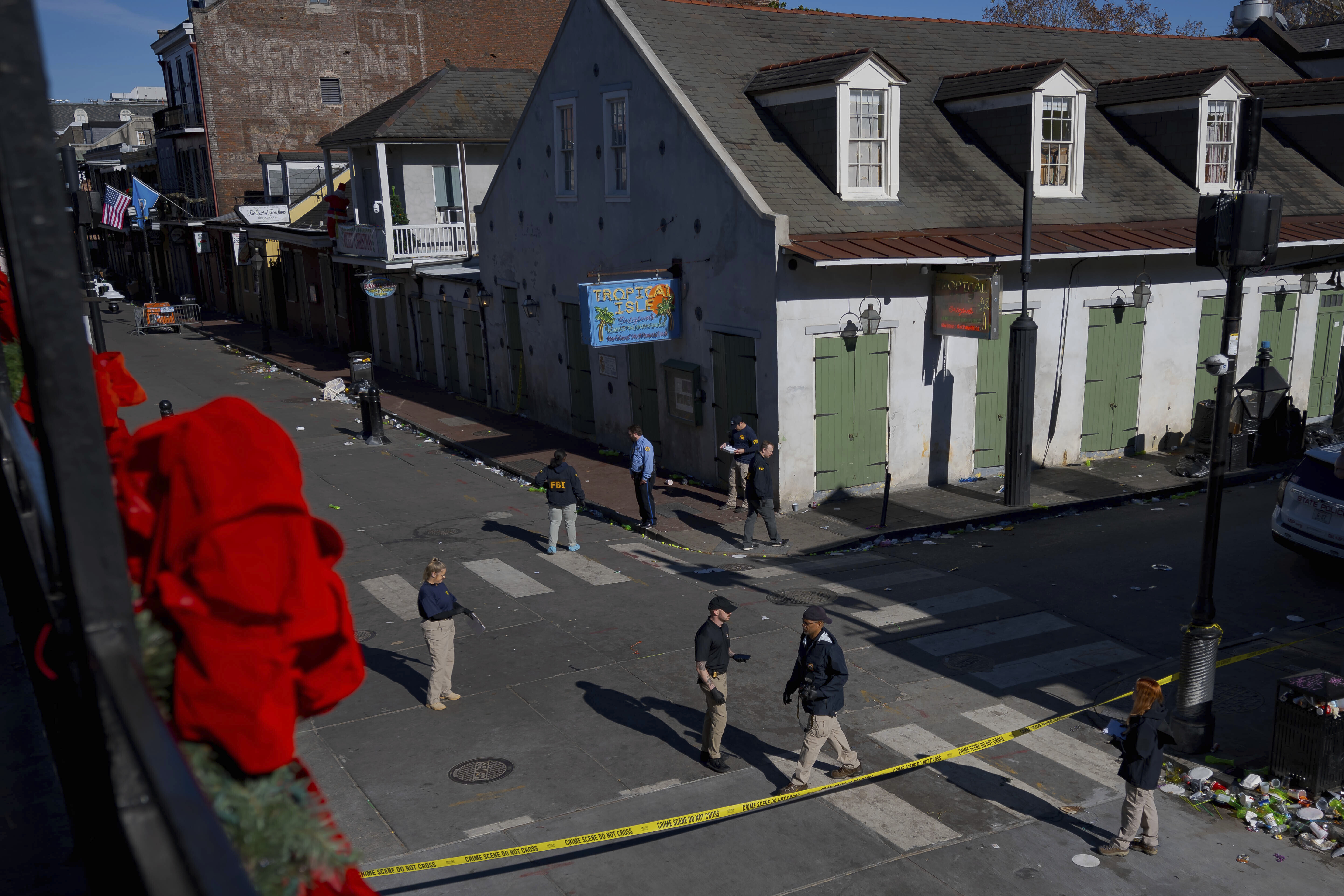
What to Know
- Liberal groups are calling on New York lawmakers to use the last days of the legislative session to pass bills related to the criminal justice system
- Assembly Speaker Carl Heastie hasn't spoken publicly about his priorities for the remainder of this year's session, which ends Friday
- Senate Majority Leader Andrea Stewart-Cousins has signaled that parole reform is one of her top priorities
Liberal groups are calling on New York lawmakers to use the last days of the legislative session to pass bills related to the criminal justice system, despite concern over rising gun violence that could make reform more politically risky.
Democrats’ veto-proof majority in the state legislature hasn’t led to swift passage of the criminal justice legislation backed by the party’s left wing. Many of those bills remained in committee Monday, with their prospects for passage this year uncertain.
Assembly Speaker Carl Heastie hasn't spoken publicly about his priorities for the remainder of this year's session, which ends Friday. Senate Majority Leader Andrea Stewart-Cousins has signaled that parole reform is one of her top priorities.
Get Tri-state area news delivered to your inbox.> Sign up for NBC New York's News Headlines newsletter.
Gov. Andrew Cuomo said Monday that he's worried about crime hurting New York City's recovery, but said he believes he accomplished his legislative goals in this year's state budget.
“I think it’s fair to say my priorities were done in the budget,” he said.
Here is a look at legislation still on the table:
News
PAROLE REFORM
Two bills related to the state's parole system were still in committee as of Friday.
Onewould direct the state parole board to start evaluating whether individual prisoners over the age of 55 would pose a “significant public safety risk” if released.
Anotherwould require the board to parole prisoners once their minimum period of incarceration is up, unless there's a “clearly articulated current public safety risk." Currently, the parole board is required to consider whether someone's release would “deprecate the seriousness of the crime.”
“Yes we punish the criminals, but (make sure) that the punishment fits the crime and that you don’t continue to pay for the crime long after you’ve done the time,” Stewart-Cousins said in a recent interview with WCNY’s Capitol Pressroom.
The legislation is part of a broader movement that has already reduced incarceration, partly through a new lawthat largely did away with cash bail for many people awaiting trial.
But an increase in some types of crime over the past year could potentially stall momentum for further reforms.
In New York City, more than 640 people have been shot over the first five months of the year, more than double the number during the same period in 2019.
Historically speaking, that shooting rate isn't much worse than what the city experienced in most years from 2002 through 2012, an era when politicians began describing New York as the nation's safest big city. But its a sharp deterioration from even safer years preceding the pandemic.
Republican Senate Leader Rob Ortt, of western New York, called Democrats' parole proposals “utter madness."
He said lawmakers should instead pass bills to require unanimous parole decisions and make people convicted of a "violent felony offense" wait longer to seek parole.
LOWERING AGE OF JUVENILE DELINQUENCY
The state Senate is set to vote in coming days on a bill to end the arrest and prosecution of kids below the age of 12, except in homicide cases.
Under state law, children can be charged as juvenile delinquent as young as age seven. Only North Carolina has a lower age limit: six.
In 2019, police arrested over 800 elementary school children in New York City ages 12 and younger, according to the Legal Aid Society. Nine out of 10 of those children were Black or Hispanic.
Supporters of the change say kids that young aren’t developed enough to be held criminally responsible for misbehavior. They point to a 9-year-old Black girl who cried out as Rochester police handcuffed her, put her in a police cruiser and pepper sprayed her in February.
AUTOMATIC EXPUNGEMENT
Another bill in committee, the Clean Slate Act, would automatically seal and eventually expunge records of criminal convictions after a certain number of years, depending on the severity of the crime.
Senate sponsor Zellnor Myrie estimates 2.3 million people would benefit from automatic expungement and have an easier time finding jobs and housing.
His bill would automatically seal a conviction for a misdemeanor one year after sentencing, or three years for a felony. That would prevent employers from viewing past convictions.
Convictions would be expunged from an individual’s record five years after conviction for a misdemeanor, or seven years for a felony.
Other states, including Connecticut, have passed similar billsthis year.
New York's bill has exceptions. It doesn't cover people currently required to register as a sex offender or people on parole or probation or with a pending criminal charge. The clock wouldn't begin to run until someone was released from jail.
Records could be still released under some conditions: for example, for prosecutors if a prior conviction would increase a penalty, or for state agencies weighing gun licenses.
New York already has a law to seal criminal records, but the new bill's supporters say few people use that law.
Republican Ortt said the bill would threaten public safety, and shield information from employers who want to know if someone was incarcerated for a violent crime.



